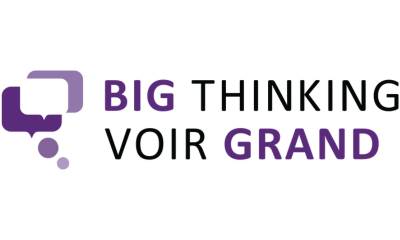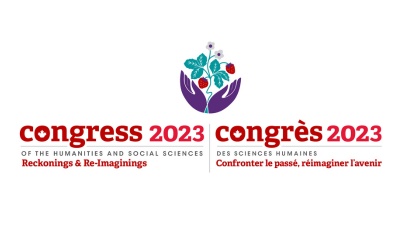I’m Michelle Maroto, Associate Professor of Sociology at the University of Alberta.
I started my academic career as an undergraduate at Boston College, before getting my Master’s and Ph.D. at the University of Washington. Following this, I came to Edmonton — a place I didn't even know existed — for a position as an Assistant Professor, and I’ve been here ever since.
I research inequality, stratification, social policy, and more, with a focus on wealth inequality, bankruptcy, social class, and disability. Recently, I have been researching how people with disabilities have been experiencing the pandemic. I also have a toddler, so I’ve been diving into Dr. Martine Agassi’s Hands Are Not for Hitting and P. D. Eastman’s Go, Dog. Go!
I’ve always been interested in the concept of ‘Stratification.’
Stratification refers to structural inequality. Not inequality that occurs because something is bad luck, or random — inequality built into the structure of society.
We grow up in a world that says people get what they deserve. You work hard? You'll get ahead. But that is not the way the world actually works. The smartest or most hard-working people do not necessarily get ahead; there are various structures causing certain people to accumulate more at the expense of others.
Stratification work often examines the intersections between race, class, and gender, but historically, disability hasn’t been considered in the same way. An estimated 15-20% of the adult population has a disability and poverty statistics show big disparities based on disability — yet it remains overlooked.
This was already a problem, but when the pandemic hit, we saw that this community — a group of people at higher risk of catching COVID-19, more likely to develop complications from catching it, and already suffering from a lot of economic insecurity — was not receiving adequate attention. We really weren’t discussing the needs of the disabled community, and I wanted to know why not.
“We’re all in this together...”
When COVID-19 first hit, people were scared. The government jumped in to provide for people, and the message that “we’re all in this together” started to spread. But we also saw some groups begin to be left out.
The Canada Emergency Response Benefit (CERB) was a good policy choice, as Canada hasn’t experienced as big an increase in poverty as other countries, but there were gaps. Supports were put in place for people who lost their jobs, but what about people who were not working in the first place? A lot of disability organizations spoke up, saying: “hey, what about us?” The government's one-time benefit for people with disabilities was not enough, and certainly not on par with CERB.
Alongside David Pettinicchio from the Department of Sociology and Munk School of Global Affairs and Public Policy at the University of Toronto and a team of research assistants, we investigated how people with disabilities were handling the pandemic. This is not a simple question, and it offers a lot of insight into the lives of people with disabilities.
For example, people with disabilities tend to be segregated into certain occupations, often with fewer benefits and lower pay. For a population already facing higher rates of unemployment and discrimination in hiring, that is a serious issue.
The nature of the jobs made available to people with disabilities has also led to disparities. Some people were able to transition to working from home. It was messy, but it was possible. But other people in jobs that don’t permit remote work were dealing with a whole host of issues, on top of having to deal with customers who won’t wear masks or social distance. In these positions, workers probably will not make a lot of money. We don't talk about this divide.
We have started to see that as the pandemic has continued, we’re not exactly “all in this together.”
How can we transition from understanding to fixing?
Addressing the gaps in Canada’s social safety net, and not just for Canadians with disabilities, could be approached in a few ways.
This could include the introduction of a universal basic income (UBI), a policy that grants everyone a certain amount of money per month. There is a lot of good research, even in Canada, that shows that UBI could help alleviate poverty by supporting children and families. UBI would be good for people in general, but especially for people with disabilities or families with precarious jobs.
A situation exists where people with disabilities on disability benefits, which are often insufficient, are simultaneously stigmatized for receiving disability benefits while experiencing barriers to employment. Broadening benefits would help with this.
Support for care work is also important. Many workers in care facilities and in-home care workers are poorly paid; greater government investment and oversight in long-term care facilities could help resolve this.
We can even think much more broadly in terms of challenges and barriers to employment. We say employers cannot discriminate based on protected characteristics, but the enforcement mechanisms are pretty weak. There is much that could be done.
The Take-Away
We often assume that in our society, everyone has equal opportunity and access to education, and that hard work yields the same benefits for everyone.
But in reality, people have different access to all these important resources from the beginning, and that often holds true throughout their lives.
If you don't have access to a good education, you won't have access to jobs. If you don't have access to a job, you can't get a house, then you can’t access equity in that way. These systems are all interconnected. If you are disadvantaged in one system, you’re likely disadvantaged in another.
It is critical to pay attention to structures, pay attention to policies.
The point of this work is to demonstrate our role in creating and maintaining inequality. We all play a role in stratification. We create the structures that lead to stratification — and we can recreate them.

Sauvegarder la nature
Voir Grand au Congrès 2024 Comment pouvons-nous faire face de façon concertée aux immenses défis posés par les changements climatiques et combattre l'injustice environnementale? Joignez-vous à un panel d’expert.e.s qui discuteront de la jonction...

Pousser la réflexion au-delà des différences : perspectives liées à l’activisme queer, aux personnes bispirituelles, et aux études critiques sur le handicap
Voir Grand au Congrès 2023 À quoi ressemblerait l’engagement de se connaître et de prendre soin les uns des autres malgré de nos différences? Comment pouvons-nous approfondir nos relations en portant plus d’attention aux perspectives queers, de même...

Boîtes à outils pour l'équité, la diversité et l'inclusion dans les communications savantes
Par Dave Hazzan, écrivain et universitaire, qui complète son doctorat en histoire à l'Université York La plupart des moyens de communication des idées savantes, y compris les conférences, les cours et les séminaires, disparaissent dans l'éther au fil...
